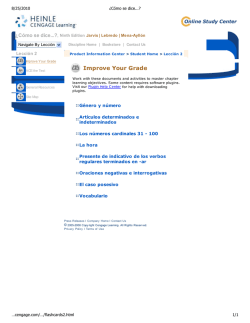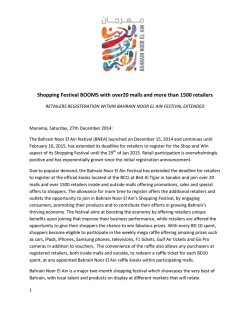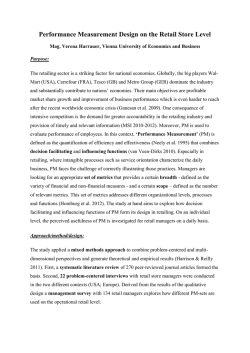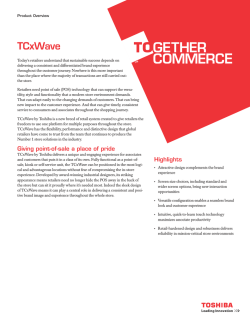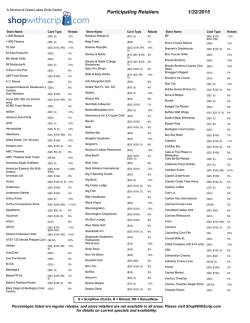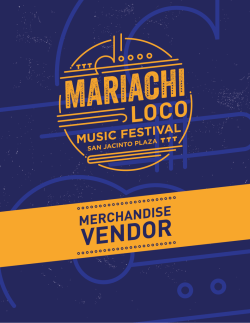
CHAPTER 14 Retailers, Wholesalers, and Direct Marketers
Principles of Contemporary Marketing Kurtz & Boone Chapter 14 Retailers, Wholesalers, and Direct Marketers CHAPTER 14 Retailers, Wholesalers, and Direct Marketers Chapter Objectives 1. Explain the wheel of retailing. 2. Discuss how retailers select target markets. 3. Show how the elements of the marketing mix apply to retailing strategy. 4. Explain the concepts of retail convergence and scrambled merchandising. Copyright © 2012 by South Western, a division of Cengage Learning. All rights reserved. CHAPTER 14 Retailers, Wholesalers, and Direct Marketers Chapter Objectives 5. Identify the functions performed by wholesaling intermediaries. 6. Outline the major types of independent wholesaling intermediaries and the appropriate situations for using each. 7. Compare the basic types of direct marketing and nonstore retailing. 8. Describe how much the Internet has altered the wholesaling, retailing, and direct marketing environments. Copyright © 2012 by South Western, a division of Cengage Learning. All rights reserved. CHAPTER 14 Retailers, Wholesalers, and Direct Marketers Retailing Strategy o Retailers base key decisions on two fundamental steps in the marketing strategy process: o Selecting a target market o Developing a retailing mix to satisfy the chosen market Copyright © 2012 by South Western, a division of Cengage Learning. All rights reserved. CHAPTER 14 Retailers, Wholesalers, and Direct Marketers Copyright © 2012 by South Western, a division of Cengage Learning. All rights reserved. CHAPTER 14 Retailers, Wholesalers, and Direct Marketers Merchandising Strategy o Guides retailer’s decisions on the items it will offer o While developing the merchandise mix, retailers should consider: o Needs and preferences of its target market o Competitive environment influencing choices o Overall profitability of each product line and category Copyright © 2012 by South Western, a division of Cengage Learning. All rights reserved. CHAPTER 14 Retailers, Wholesalers, and Direct Marketers Customer Service Strategy o Heightened customer service is one possible retailing strategy o The goal is to attract and retain target customers to increase sales and profits o Some services that retailers could provide: o Enhanced comfort through lounges, complimentary coffee, convenient restrooms o Child-care services for customers o Virtual assistance programs Copyright © 2012 by South Western, a division of Cengage Learning. All rights reserved. CHAPTER 14 Retailers, Wholesalers, and Direct Marketers Pricing Strategy o Prices reflect a retailer’s marketing objectives and policies o They affect consumer perceptions Copyright © 2012 by South Western, a division of Cengage Learning. All rights reserved. CHAPTER 14 Retailers, Wholesalers, and Direct Marketers Location/Distribution Strategy o Location depends on many factors, including the type of merchandise, the retailer’s financial resources, characteristics of the target market, and site availability Copyright © 2012 by South Western, a division of Cengage Learning. All rights reserved. CHAPTER 14 Retailers, Wholesalers, and Direct Marketers Promotional Strategy o Promotion informs customers about locations, merchandise selections, hours of operation, and prices o Helps retailers attract shoppers and build customer loyalty o National chains purchase advertising in print and broadcast media Copyright © 2012 by South Western, a division of Cengage Learning. All rights reserved. CHAPTER 14 Retailers, Wholesalers, and Direct Marketers Copyright © 2012 by South Western, a division of Cengage Learning. All rights reserved. CHAPTER 14 Retailers, Wholesalers, and Direct Marketers Classification of Retailers o By form of ownership o By shopping effort o By services provided o By product lines Copyright © 2012 by South Western, a division of Cengage Learning. All rights reserved. CHAPTER 14 Retailers, Wholesalers, and Direct Marketers Retail Convergence and Scrambled Merchandising o Retail convergence - Situation in which similar merchandise is available from multiple retail outlets, resulting in the blurring of distinctions between type of retailer and merchandise offered o Scrambled merchandising - Retailing practice of combining dissimilar product lines to boost sales volume Copyright © 2012 by South Western, a division of Cengage Learning. All rights reserved. CHAPTER 14 Retailers, Wholesalers, and Direct Marketers Functions of Wholesaling Intermediaries o Creating utility o Providing services o Lowering costs by limiting contacts Copyright © 2012 by South Western, a division of Cengage Learning. All rights reserved. CHAPTER 14 Retailers, Wholesalers, and Direct Marketers Copyright © 2012 by South Western, a division of Cengage Learning. All rights reserved. CHAPTER 14 Retailers, Wholesalers, and Direct Marketers Direct Marketing and Other Nonstore Retailing o Direct marketing - Direct communications, other than personal sales contacts, between buyer and seller, designed to generate sales, information requests, or store or Web site visits Copyright © 2012 by South Western, a division of Cengage Learning. All rights reserved. CHAPTER 14 Retailers, Wholesalers, and Direct Marketers Other Nonstore Retailing o Direct mail o Direct selling o Direct-response retailing Copyright © 2012 by South Western, a division of Cengage Learning. All rights reserved. CHAPTER 14 Retailers, Wholesalers, and Direct Marketers Telemarketing o Direct marketing conducted by telephone o Most frequently used form of direct marketing Copyright © 2012 by South Western, a division of Cengage Learning. All rights reserved. CHAPTER 14 Retailers, Wholesalers, and Direct Marketers Internet Retailing o Selling directly to consumers via Web storefronts o Internet-based retailers keep little or no inventory o Fill customer orders directly from vendors o Some traditional brick-and-mortar stores have successfully extended their presence to the Web o Examples: Gap and Lands’ End Copyright © 2012 by South Western, a division of Cengage Learning. All rights reserved. CHAPTER 14 Retailers, Wholesalers, and Direct Marketers Automatic Merchandising o Primarily used to sell food items, lottery tickets in the U.S. o Other countries use vending machines to offer a wider variety of goods o As technology advances, high-end products are being sold in vending machines Copyright © 2012 by South Western, a division of Cengage Learning. All rights reserved.
© Copyright 2026
